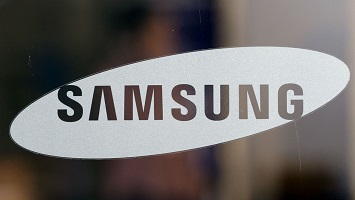Shares in Samsung Electronics climbed nearly three per cent Tuesday on the back of its chief rival Huawei’s mounting problems, including a decision by Google to sever ties with the Chinese mobile phone maker.
It is the latest in the months-long saga between Huawei and the United States analysts warn could see Chinese semiconductor demand fall, threatening a nascent Asian recovery in the industry.
US internet giant Google, whose Android mobile operating system powers most of the world’s smartphones, said this week it is cutting ties with Huawei to comply with an executive order issued by President Donald Trump.
The move could have dramatic implications for Huawei smartphone users, as the firm will no longer have access to Google’s proprietary services — which include the Gmail and Google Maps apps.
Investors bet Huawei’s loss could benefit Samsung, the world’s biggest smartphone maker which has been facing increasing competition from its Chinese rival, sending its shares up 2.7 per cent at closing on Tuesday.
Analysts say the US ban will damage Huawei’s ability to sell phones outside China, offering Samsung a chance to consolidate its position at the top of the global market.
“If you are in Europe or China and couldn’t use Google map or any Android services with a Huawei smartphone, would you buy one?” MS Hwang, an analyst at Samsung Securities, told Bloomberg News, adding: “Wouldn’t you buy a Samsung smartphone instead?”
Samsung accounted for 23.1 per cent of global smartphone sales in the first quarter of this year, according to industry tracker International Data Corporation, while Huawei had 19.0 per cent.
But Huawei’s troubles may be a double-edged sword for Samsung — also the world’s biggest chipmaker — if it leads to a plunge in demand for semiconductors.
China dominates purchases from Asian chip makers and bought 51 per cent of their shipments in 2017, Bloomberg reported citing a Citigroup analysis. Including Hong Kong, it accounted for 69 per cent of South Korea’s chip production.
“In our view, China’s restocking efforts for electronic goods will likely weaken and be delayed if the tensions and the ban stay longer, which likely will hurt overall demand,” the report said.
Last week, Trump declared a “national emergency” empowering him to blacklist companies seen as “an unacceptable risk to the national security of the United States” — a move analysts said was clearly aimed at Huawei.
The US Commerce Department announced a ban on American companies selling or transferring US technology to Huawei, with a 90-day reprieve by allowing temporary licences.














